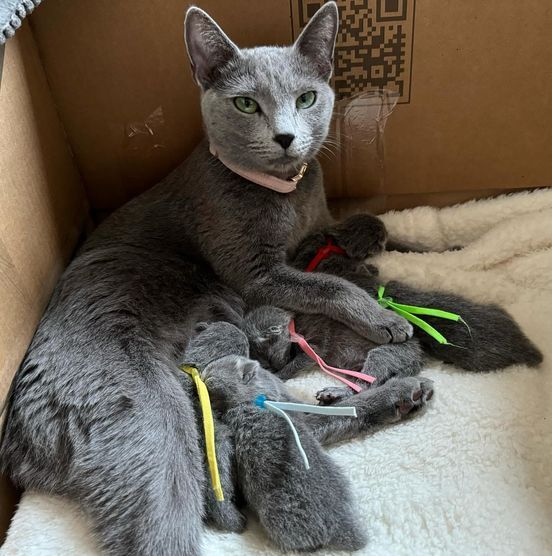Russian Blue cats are admired for their plush, silvery blue coats and graceful physiques, but maintaining their signature appearance and health requires more than good genetics. Nutrition plays a pivotal role in supporting their dense double layered fur, lean muscle tone, and overall vitality. While many cat owners rely on generic feeding guidelines, Russian Blues benefit from a more tailored approach that considers their metabolic tendencies, grooming habits, and breed specific sensitivities.
Unlike some breeds that are prone to overeating, Russian Blues often exhibit a more measured appetite. However, they can still gain weight easily due to their sedentary nature, especially in indoor environments. A diet rich in high quality animal protein helps maintain their muscular build without contributing to excess fat. Chicken, turkey, and rabbit are excellent sources, but rotating proteins can prevent dietary boredom and reduce the risk of food sensitivities. Including omega-3 and omega-6 fatty acids found in fish oils and flaxseed enhances coat sheen and supports skin health, which is particularly important for a breed known for its velvety fur.
Carbohydrates should be approached with caution. While not inherently harmful, excessive carbs can lead to weight gain and dull coats. Grain free formulas often appeal to Russian Blue owners, but the key lies in balance rather than exclusion. Small amounts of digestible carbs like sweet potato or pumpkin can aid digestion and provide energy without overwhelming the diet. Fiber also plays a role in managing hairballs, a common issue in cats with thick coats. Including natural fiber sources like beet pulp or psyllium husk can support gastrointestinal health and reduce grooming related complications.
Hydration is frequently overlooked in feline nutrition. Russian Blues, like most cats, have a low thirst drive and may not drink enough water on their own. Wet food offers a practical solution by increasing moisture intake while delivering concentrated nutrients. Combining wet and dry food can provide texture variety and dental benefits, but the ratio should favor hydration, especially in warmer climates or for older cats. Fresh water should always be available, and some cats respond well to pet fountains that encourage drinking through movement and sound.
Supplements can enhance a Russian Blue’s diet when used judiciously. Taurine, an essential amino acid, supports heart and eye health and is naturally present in meat. Biotin and zinc contribute to coat quality and skin resilience, while probiotics aid digestion and immune function. However, supplementation should never replace a balanced diet and must be guided by veterinary advice to avoid nutrient imbalances.
Feeding routines also influence health outcomes. Russian Blues thrive on consistency, and scheduled meals help regulate metabolism and prevent overeating. Free feeding, while convenient, can lead to weight issues and disrupt natural hunger cues. Measuring portions based on age, activity level, and body condition ensures that nutritional needs are met without excess. Regular weight checks and body condition scoring provide feedback that can guide dietary adjustments over time.
Understanding the unique needs of Russian Blue cats transforms feeding from a routine task into a strategic practice. Their luxurious coats and elegant physiques are reflections of internal health, shaped by thoughtful nutrition and attentive care. By prioritizing quality ingredients, hydration, and breed specific considerations, owners can support not just a shiny coat, but a long, vibrant life. This approach goes beyond the basics, offering a deeper appreciation for how diet influences every aspect of feline well-being.
Related Cat Breeds:

